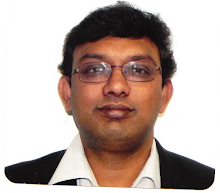Can Game theory explain behaviors?

- Competetion with in a company for a CEO position
- Competetion between fellow students who rat race towards grades
- Sub-optimal performance by employees, students etc.,
While the first two in the above list are easy to understand the third one is a bit complicated. Let me try to get into the details by trying to answer the following question:
Why do some employees do not perform with their full potential?
Some possible answers
- Employee do not have enough resources.
- Employee is not capable.
- Employee thinks he is not capable.
- Employee thinks other things are more important than work.
- Employee thinks that by working better. the result may not be necessarily beneficial to him as an individual
- Employee works in an environment where failures are not encouraged and successes are not rewarded
- Employee works to only certain extent that his promotion, recognition etc., are assured
I might have missed a few more situations but my point is that employee is either not seeing the payoffs or payoffs are simply not worth taking the risks. In my opinion, all the above situations can be rectified or at least mitigated by better work practices.
I haven't seen a perfect compensation system which really works. Most of the compensation systems are at best designed well but used poorly. And compensation may not be the only thing which can be causing the behaviours. A few other factors I think which can be controlled and there by leading to optimal behaviors are:
- Recognition
- Environment
- Culture
- Lack of guidance
- Lack of structure
- Freedom
In otherwords payoffs can be a combination of a compensation plus other such qualitative factors which affects the behaviors.
Conclusion: Game theory can explain a few behaviors in the work place; understanding the theory will enhance our capacity as future leaders to fine tune work practices in the best way possible.




